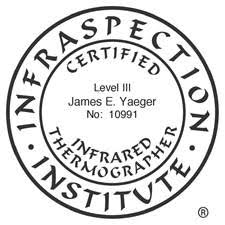
.jpg)

One extreme truth about drain clogs and sewer backups: They only happen on weekends and holidays when it is either expensive or impossible to get a plumber.
Here are three main ways to avoid sewer backups and clogged drains. They may seem simple, but people often don't take them seriously.
- Don't flush anything but toilet paper. Seriously, don't flush feminine products of any kind. Don't flush paper towels, facial napkins, and certainly not diapers.
- Don't dump a bunch of stuff down your garbage disposal at one time. This might become clear if, for example, you try to stuff all your potato peelings down the garbage disposal at once. After you do that, you can take the disposal trap apart and fish them out that way. This experience usually cements this rule in the mind of most cooks. Most find this out in preparation for a holiday dinner. Worse, if the large lump of stuff makes it through the trap, it is going to lodge in the sewer line. Very bad look for Thanksgiving.
- Don't pour grease down your drain. Some people actually think grease is the only thing you can put down the drain. And, that is wrong. All fats can be melted by running hot water down the drain with them, but the fats won't stay that way. They will ultimately harden and block the sewer line.
If you have slow drains or a block, solve the problem and call a plumber. Liquid drain openers can hurt pipes and that will cause many expensive future problems. At least a plumber can discover the cause of clogs and backups.
Your Monthly Maintenance Minute
Utility workers caution that ...Wipes in the pipes are clogging sewers
Sewers everywhere are stopped up and there is plenty of blame to go around from personal carelessness to faulty products.
For one thing, people think that any thin cleaning wipe or baby wipe can be flushed down the toilet. How wrong they are.
Non-flushable cleanup wipes, baby wipes, and sanitary products must not be flushed down the toilet.
The reason is simply that, unlike toilet paper, these other materials do not dissolve. Instead they clog up the sewers, damage equipment, and cost cities and taxpayers a lot of time and money.
In one city, they had to hire a contractor to vacuum out a lift station and remove a truckload of cloth material. It's happening all over the country.
The Association of the Nonwoven Fabrics Industry says researchers collected and analyzed materials from wastewater pumps and found that most items clogging equipment are not labeled flushable.
These items, experts suggest, should be more clearly labeled Do Not Flush.
Kimberly-Clark's flushable Cottonelle cloths undergo extensive testing to ensure they are compatible with home and city sewer systems. However, some flushables do not comply.
Some companies have heavily promoted bathroom wipes, while some cleaning product manufacturers have also advertised sponges they say can be disposed of in a toilet.
A Consumer Reports test showed that toilet paper disintegrated after about eight seconds, but some wipes still hadn't broken down after 30 minutes. They should never have been classified as flushable.
